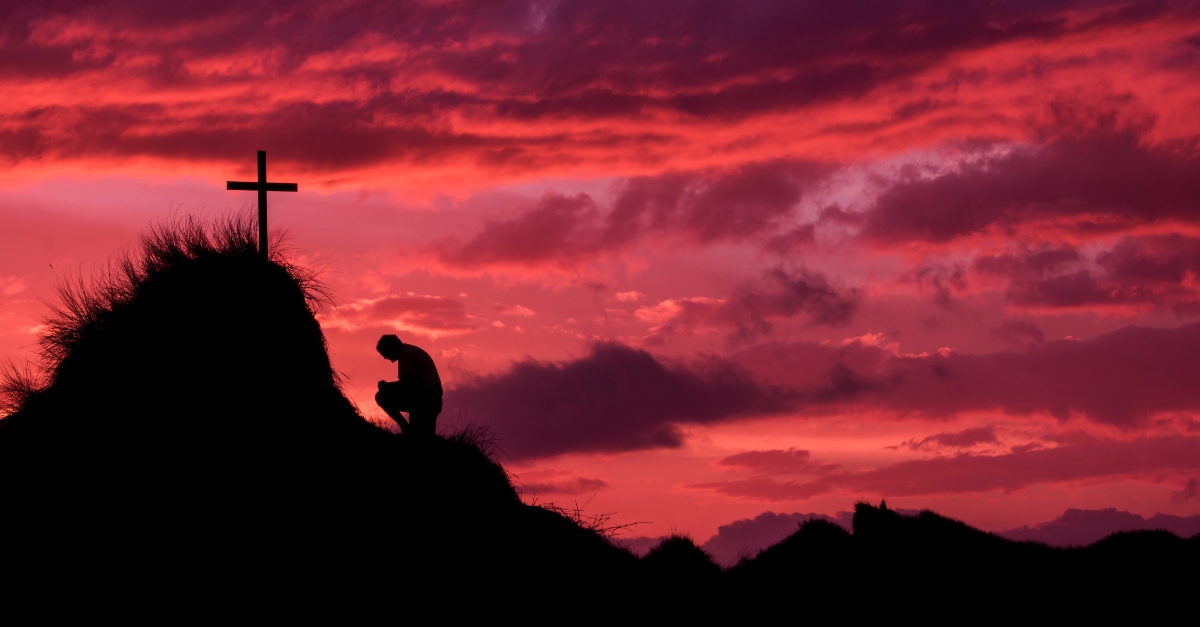What Is the Upside-Down Nature of the Kingdom of God?
Share

The Jewish people who returned from Babylonian exile looked forward to the restoration of a Jewish kingdom. They expected a world dominating kingdom with a descendant of David on the throne and Jerusalem as its capital. But centuries had gone by. And they had been under the control of one world empire after another. They had to have been wondering if the promised kingdom would ever come.
But then Jesus came proclaiming the coming of the Kingdom of God. And it raised the hopes of many people. Was the kingdom they had looked forward to at hand? Would Jesus lead a rebellion that would overthrow the Romans and establish a Jewish Kingdom?
Jesus did indeed come to establish the promised kingdom. But it was not the kingdom they were expecting. There is much that can be written about the kingdom Jesus established. But this article will be looking at one aspect in particular, the upside-down nature of that kingdom.
The Suffering Servant
Maybe the first hint of the difference that God’s kingdom would bring can be found in Isaiah’s Servant poems, in particular the Suffering Servant of Isaiah 52:13-53:12. This poem describes the servant as one who was despised, rejected, oppressed, afflicted, and killed for the sins of his people. He was a sacrifice who took the Lord’s punishment for the people upon himself.
But, in closing, God tells us what the outcome will be for this servant.
“Therefore I will give him a portion among the great,
and he will divide the spoils with the strong,
because he poured out his life unto death,and was numbered with the transgressors.
For he bore the sin of many,
and made intercession for the transgressors.”
This servant, who we understand to be Jesus, because of his sacrifice for others, was given a portion among the great, dividing the spoils with the strong. In what becomes a recurring theme in the Bible, it is the one who serves, or sacrifices, who becomes great in the kingdom of God.

Photo credit: ©Getty Images/Gordon Images
Winning by Dying
When Paul wrote his letter to the Colossian church it is likely that he had the passage from Isaiah in mind.
“When you were dead in your sins and in the uncircumcision of your flesh, God made you alive with Christ. He forgave us all our sins, having canceled the charge of our legal indebtedness, which stood against us and condemned us; he has taken it away, nailing it to the cross. And having disarmed the powers and authorities, he made a public spectacle of them, triumphing over them by the cross” (Colossians 2:13-15).
Jesus poured out his life unto death, bearing our sin. But in doing so he cancelled the charges against us, disarmed those who were against us, and triumphed over them by the cross. Jesus’ apparent defeat and humiliation on the cross was actually the defeat and humiliation of his, and our, real enemies. The forces of darkness that lead the world astray and held us captive.
It was in giving his life that Jesus gained the victory. And that is true for each of us as well. Paul, in Galatians 2:20, expresses that he has been crucified with Christ and now lives by faith in the risen Christ. He later adds, in Galatians 5:24, that all who belong to Christ have done likewise. It is by dying to self, crucifying the flesh, that we can have life in Christ and the victory that comes with that.
The Sermon on the Mount
The first hint in Jesus’ teaching of this upside-down nature of the kingdom comes at the beginning of what we know as the Sermon on the Mount in Matthew 5-7. In the Beatitudes, Jesus declared several different types of people as being blessed, or happy. These are the poor in spirit, the mourners, the meek and merciful, the pure in heart, and the peacemakers.
Our natural world looks at most of these people as being insignificant or undesirable. But Jesus says of them that theirs is the kingdom of heaven, inheritors of the earth, and children of God. The way that our world views people is not the same as the way that they are viewed by God. Those that our world looks down on are valued in the kingdom of God.
When one reads the Sermon on the Mount it is hard not to recognize that what Jesus teaches is often in contrast with what the world, or even the Jewish people, taught. Over and over he says, “You have heard it said . . . but I say . . ..”
People in the world act to be seen and applauded by others. In the kingdom we act secretly to be rewarded by God. Give to the needy, not to be seen by men, but by God. Pray and fast, not to be seen as religious by the world, but secretly to be seen and rewarded by the Father in heaven.
Don’t worry about your life, food, and clothes. The world does that. Trust instead in your heavenly Father who knows what you need and will care for you. Don’t judge others. Rather focus on your own faults. Enter by the narrow gate. Not by the wide road that most people take.
The Least Are the Greatest
Another passage that makes clear the upside-down nature of the Kingdom comes from Matthew 23:11-12. In this passage Jesus says that “The greatest among you will be your servant. For those who exalt themselves will be humbled, and those who humble themselves will be exalted.” This is in stark contrast with the way our world works. We look to the rich and powerful, the ones with the most influence, and call them greatest. But not so with Jesus and his kingdom.
Jesus demonstrated this “least is greatest” attitude when he washed his disciple’s feet in John 13:1-17. Jesus took on the role of a servant to wash the dirty feet of his disciples. And then told them that they should follow his example.
But Jesus’ greatest demonstration of this comes at the cross. The creator of the universe, greater than all but the Father, gave up his life for his creation. Rather than coming as the conquering king that so many expected, and the world would have understood, he came as the suffering servant of Isaiah 53. It is hard to imagine a greater role reversal than the creator dying on a rough Roman cross as a criminal. Yet that is what he did.

Photo credit: Unsplash/Milada Vigerova
Choosing the Foolish to Shame the Wise
The organizations of this world, whether nations or companies, look for the strong and wise to lead them and fill their positions of authority. We want competent and successful people leading us. Because those are the people who will help us to be successful and prosperous.
But things are different in the Kingdom of God. In 1 Corinthians 1:18-31 we find Paul sharing about the kinds of people God has chosen to be a part of his kingdom. And, for the most part, they are not the people we would have chosen. “God chose the foolish things of the world to shame the wise; God chose the weak things of the world to shame the strong. God chose the lowly things of this world and the despised things—and the things that are not—to nullify the things that are, so that no one may boast before him” (1 Cor. 1:27-29). God did not choose the wise and strong. Instead, he has chosen the weak, the foolish, and the lowly. What is important in the Kingdom is not human achievement. Rather, it is what God is doing in the lives of people. God is at the heart of the kingdom, not humanity and our attempts at achievement.
God’s Power Perfected in Weakness
Paul was somewhat of an exception to the previous passage. As he expresses elsewhere (Phil. 3:4-6), he had a lot going for him. But he gave it all up for the privilege of knowing Christ (Phil. 3:7-8). Paul also suffered from a debilitating physical ailment that made it difficult to carry out his commission from God. And as he prayed for it to be removed, God spoke to him about strength and weakness. God told him that it was in Paul’s weakness that God’s power would best be displayed (2 Cor. 12:7-10).
In the world, we celebrate human achievement. Climbing the tallest mountain. Winning a race. Earning a million dollars. Or any other newsworthy achievement. Those are the people we look up to. But it is not that way in the Kingdom. Instead, what is significant is what God is doing in the lives of people who are surrendered to him. As Paul would say, it’s not about me. It’s all about God.
Upside Down
One of the most challenging concepts of the Kingdom of God is that what we celebrate as people on earth is often of little value in the Kingdom, and vice-versa. Jesus’ teaching, especially in the Sermon on the Mount, is at odds with much of human wisdom. Jesus’ establishment of his Kingdom through death rather that human strength is a foolish stumbling block to our world. The elevation of the weak and foolish as well as celebrating personal weakness and God’s power makes no sense to a world that celebrates power and wisdom.
The nature of the Kingdom of God is radically different than any human kingdom. All the human attributes that are valued in our world are of little account in the Kingdom. And the attributes valued in the Kingdom are typically discounted in our world. We will never, on our own, know or enter the Kingdom. It is only by the grace and mercy of God that we can be a part of his kingdom.
Photo credit: ©Getty Images/sultancicekgil
